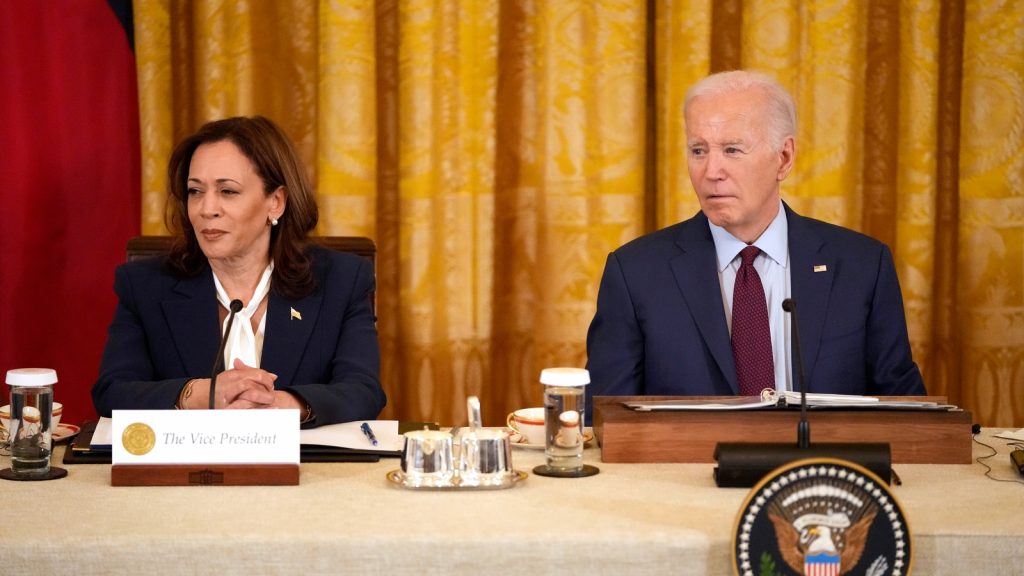I was only a little surprised by Biden’s debate performance, and on first glance thought it just mediocre, certainly not cause for a crisis. But that’s because I consume too much alternate media, and had seen the endless string of viral clips of Biden falling down the main stairs of Air Force One (and being reassigned to the shorter crew stairs in response.) I’ve seen the memes and loops of his many gaffes, and the awkwardly long pauses where Joe just drifted off when he is no longer next to puppet master Jill to cue him. So the debate was little surprise to me. But for those whose media diet is slim, and whose images of Biden were relegated to highly edited MSM clips, many saw Biden in-the-real for the first time and it shocked the hell out of them. It was clear what many had said before to little belief: the Emperor had no clothes.
Some 85 percent of voters thought Biden was too frail to be president. That massive number of Americans must include almost everyone who has cared for an aging relative and knows the signs: mixed up words, forgotten details, the long, empty stares where conversation used to be. His debate performance and other stumbles were symbols of a deteriorating man, not signs of a bad night. Biden’s boast he faced a cognitive test every day was belied by the results: endless war in the Ukraine with no path to victory, endless war in Gaza where the Israel mocks Biden’s red lines, and the economy, with intransient inflation eating away at paychecks. Biden failed at the real meat of the job, which is not being discussed, never mind just the bad optics. His own stubbornness and the games played around him weakened America at home and left it exposed and vulnerable to forces abroad.
Which brings us to Biden Problem Two, actually a Kamala problem, the fact that the White House, Democratic Party and Joe himself have been, abetted by the MSM, lying to us for years about the condition of first Candidate Biden and then President Biden. We now can surmise the 2020 campaign from his basement by Biden, supposedly run that way because of Covid, was actually a subterfuge, a way to spoon feed good images and sound bites of Biden to the public and hide his ongoing condition. Clever propaganda, like Franklin Roosevelt appearing to “stand” at public events when in fact in private he was wheelchair-bound due to polio. The Wall Street Journal reports congressional leaders were worried about Biden’s mental state back in 2021. Democrats covered it up. That’s who Kamala is beholden to, leaving the Democratic base to consist of Pelosi, Schumer, and Jeffries.
Kamala’s problem is not with the undecided voters, it is with Democratic voters. How can they believe her after such malarkey? Indeed, it was only a week before the debate the White House was claiming video of Biden wandering off and/or falling down was the result of nefarious editing and visual trickery (that line of argument dissipated quickly post-debate.) Then it became a dead solid accepted fact that Biden was senile, and Democrats were paralyzed. No one listened to anything except questions about Biden’s ability. No one seemed to ask but likely thought about why this was hidden from the public. Kamala begins her campaign shouting into the wind “Believe me!” Why should anyone? Did she not see Biden’s deterioration and keep silent about it? Meanwhile, the Democratic party, which has accused Trump of being anti-democracy, is running a candidate who never won a primary, removing the loser via some back room process as transparent as chocolate pudding. Remember all the moaning about the many political and Constitutional crisis Trump was to unleash? Here’s a real one.
You’ll hear no mea culpa from the MSM about remaining quiet over what they knew from their own close contact with the President, as they remained silent after lying about Russiagate and Hunter’s not-Russian laptop. They saw the real Joe Biden and instead of informing the American people, acted as agents of the Democratic party to help cover things up. In an era where everything about Trump is fair game and then some (if there’s no lead story today make one up!) the media was silent about Joe. This is the same MSM which for four years of Trump bleated emptily about the 25th amendment and how Trump was unstable, unqualified, and mentally ill.
To make things worse, the MSM pivoted twice in a two week span, jumping on Biden to quit the race like school cafeteria bullies (Bill Maher called them “Mean Girls who smelled blood in the water”) and then to spew out funereal-like dirges about Biden the statesman when he did drop out (Biden clung to the Resolute desk like a Titanic survivor and then left office with the same grace he showed in Afghanistan.) It was almost as if someone was directing the whole affairs from afar. Maybe it was this guy — MSNBC legal analyst Glenn Kirschner admonished the home team corporate media to ramp up its negative coverage of Trump while not “ginning up” reasons to criticize the Vice President. Kirschner, on YouTube, urged the media to prioritize critical coverage of Trump while treating Harris better than it treated Biden following the June debate.
The so-called defenders of democracy abetted a cover-up and a coup in plain sight. Credibility? Why should anyone believe them about anything Kamala-related going forward?
Source: The Real Problem with Biden’s Age – The Ron Paul Institute for Peace & Prosperity


